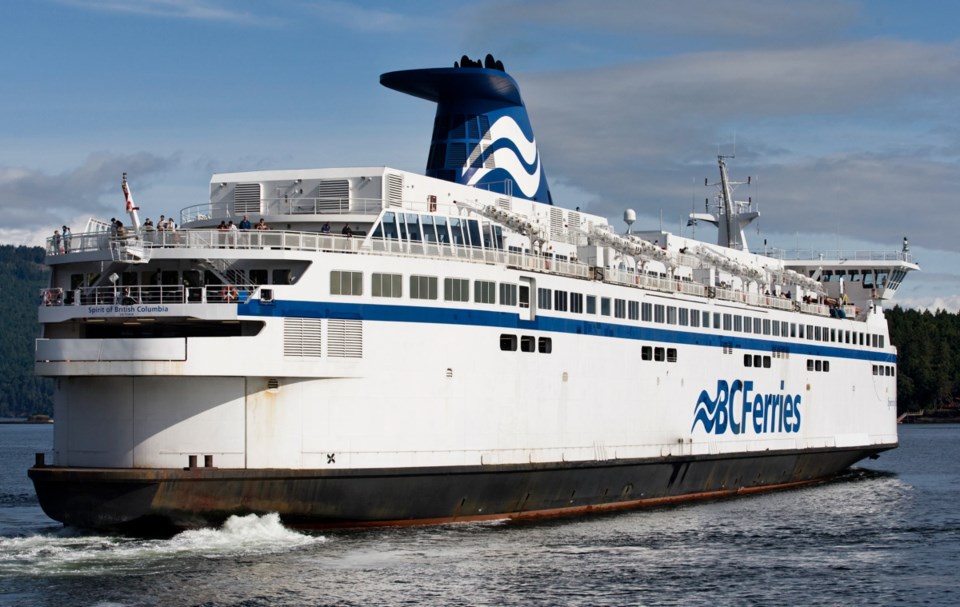Mid-life upgrades are coming for the two B.C. Ferries Spirit-class vessels that run between Swartz Bay and Tsawwassen, and the jobs are bound to be valued in the tens of millions of dollars.
Modifications to the Spirit ferries, the biggest in the fleet, are slated to be carried out in 2016 and 2017, says a B.C. Ferries expression of interest seeking companies to do the work.
The plan includes replacing the diesel-powered propulsion system with one that uses both natural gas and diesel, B.C. Ferries said.
“A key initiative in this project is to minimize the vessels’ fuel costs and environmental footprint.”
Natural gas is a cleaner fuel than diesel, and costs less.
The final decision on whether to run the Spirit-class ferries on LNG requires approval from the B.C. Ferries board and from the B.C. Ferry Commissioner.
Several shipyards on the coast are interested in the work, said George MacPherson, president of the B.C. Shipyard General Workers’ Federation, on Tuesday from Vancouver.
While the value of the entire mid-life upgrade is not yet known, he estimated the work on each vessel could reach $50 million to $60 million.
Mid-life refits are high-cost projects. The recent refit and life-extension for the 163-feet-long MV Tachek ferry at Point Hope Shipyard cost $20 million.
The 550-feet-long Spirit of British Columbia was built in 1993. A year later, the Spirit of Vancouver Island, also 550 feet long, was launched.
Both vessels, which each have a passenger and crew capacity of 2,100, were built in B.C.
MacPherson anticipates that the mid-life upgrading for the Spirit vessels will be done in B.C.
The location of shipyard work for B.C. Ferries is a hot-button issue in the province.
A new $15-million cable ferry will be built by North Vancouver-based Seaspan Marine.
But B.C. Ferries has announced that a shipyard in Poland will build three 344-feet-long, intermediate-class ferries. They will also be dual-fuel ships, running largely on liquefied natural gas.
Some British Columbians are outraged that the work has gone offshore, while others say it makes financial sense.
MacPherson represents union workers eager to have the work and training provided by such large contracts.
Each Spirit-class job is likely to take months, he said.
“It’s a lot of work.”



